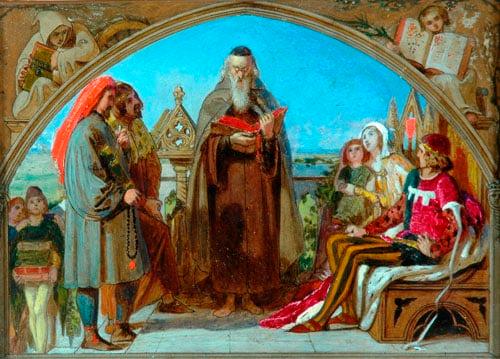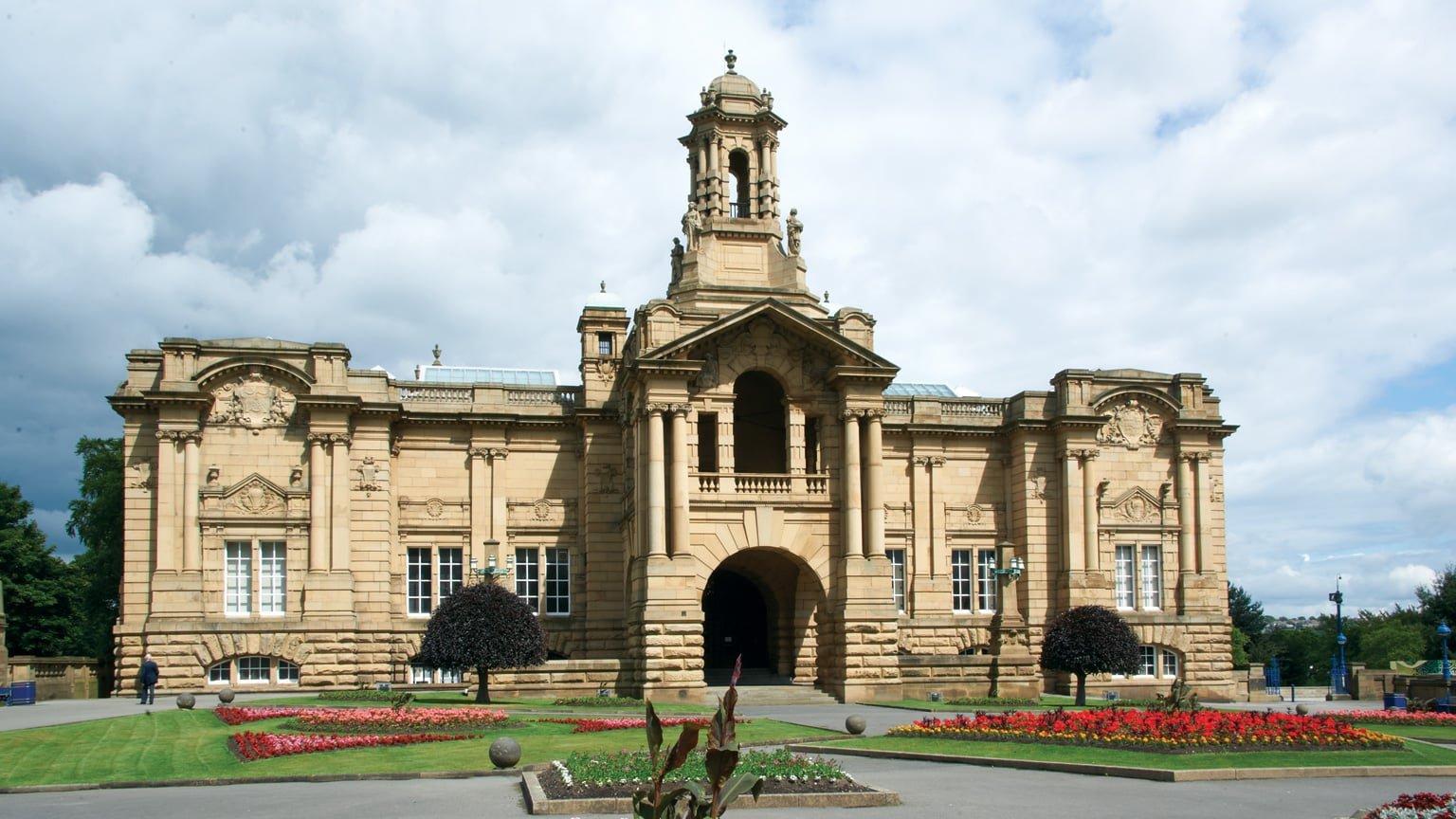Wycliffe Reading his Translation of the Bible to
Ford Madox Brown, 1847–1851

Following his early work in a lush Romantic idiom, Brown revolutionised his style under the influence of Holbein, the early Italians, and the modern Nazarene school, proceeding to develop what he called his 'Early Christian' style. This modello reveals a debt to the Nazarenes in their balanced compositions and purity of line, while the medieval furnishings were based on designs by Pugin. Brown's anxiety to create an English version of the Nazarene style is reflected in his choice of themes. Wycliffe celebrated the dawn of the English Reformation in sharp contrast to the Nazarenes' glorification in their Catholic heritage. Brown also went beyond the Nazarenes in his interest in the effects of light and nature. The gallery also has the painting of the same name in its collection.
More information
Title of artwork, date
Wycliffe Reading his Translation of the Bible to, 1847–1851
Date supported
1980
Medium and material
Oil on board
Dimensions
17 x 25 cm
Grant
5000
Total cost
27000

Get a National Art Pass and explore Cartwright Hall Art Gallery
You'll see more art and your membership will help museums across the UK
Art Funded by you FAQs
Contact us
If you have a question about a work of art in our archive, please contact the Programmes team. We’ll be happy to answer your enquiry.